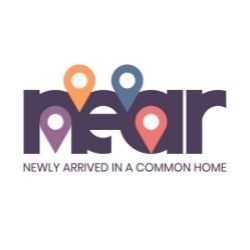NEAR (NEwly ARrived in a common home) is a European project that aims at fostering social orientation of newly arrived migrants during their settlement in the receiving countries. Funded under the Asylum, Migration and Integration Fund (AMIF), NEAR activates a process of mutual trust, knowledge and cross-cultural transfer between migrants and local communities, building a sense of belonging of "a new common home".
The project is highly context-specific and offers a unique approach towards integration at local level in four target areas (Lisbon, Nicosia, Perugia, Milan) that cater to different groups of migrant beneficiaries and combines multiple strands of activities: building the capacity of and empowering diaspora stakeholders, facilitating access to services and labour market entry for asylum seekers and international protection holders, strengthening inclusion levels of newly arrived children, and enhancing orientation and opportunities for newly arrived university students.
NEAR is coordinated by Fondazione ISMU (Italy) and is implemented in partnership with Tamat NGO (Italy), CARDET NGO (Cyprus), AIDGLOBAL (Portugal) and the Catholic University of Milan (Italy).
Capacity building and empowerment of diaspora stakeholders (named "Community Agents, CAs") plays a central role in the NEAR approach. Since the early start of the project, partners mapped diaspora and other migrant stakeholders in the four cities to identify the most suitable neighbourhood. After setting up an outreach campaign, they organised consultation meetings with interested diaspora stakeholders to identify the knowledge gaps and needs and co-design training programmes on relevant public, private and non-profit integration services by also partnering up with key service providers at local level.
This report takes stock of a year-long outreach, training and engagement of diaspora stakeholders. In doing so, it aims to facilitate the transfer of experiences, tools, knowledge and practices for organizations, practitioners and other interested groups to build the capacity of and empower diaspora communities as actors in the integration of newly-arrived migrants at local level.




